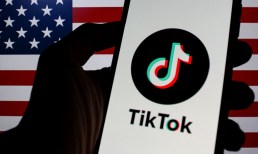The retailer will stop the practice of matching the prices of products from rival retailers like Walmart and Amazon beginning July 28, Retail Dive reported Friday (July 18).
The company has seen that shoppers “overwhelmingly price match Target and not other retailers,” a Target spokesperson told the news outlet.
“We’re always working to deliver consumers outstanding value and give them confidence to choose Target, with our everyday low prices, affordable and quality-focused owned brands, incredible deals, free-to-join membership program, Target Circle, and more,” the company said.
With the soon-to-be-discontinued policy, Target matches prices on identical qualifying items from Amazon and Walmart, and allows customers to request such price matching at the time of purchase or within 14 days afterward, the report said.
The report noted that this change is happening amid a major turnaround effort by Target following sliding sales and foot traffic, consumer backlash and the rocky tariff environment.
Former CEO Brian Cornell said on an earnings call in May that price increases are seen as a “last resort” when it comes to softening the impact of tariffs.
PYMNTS has contacted Target for comment but has not yet gotten a reply.
Target’s move is happening during a summer that is turning out to be a pivotal one for retail giants, as PYMNTS wrote last week.
“Sitting at the intersection of geopolitical headwinds, U.S. tariffs, AI disruption and an increasingly cost-conscious consumer, the question hanging over the retail industry is this: Can anyone thrive when the shopper won’t save them?” that report said.
Although extended sales events such as Amazon’s Prime Day and Walmart+ Week were once “celebratory bonanzas of consumption,” PYMNTS added, they felt this year “more like high-stakes stress tests of brand agility, pricing power and technological readiness.”
Amazon’s longer-than-normal Prime Day drove billions in sales, but also showed that consumers were more interested in essentials they could buy for under $20 than in big-ticket impulse buys. The average household spend — $156 — was roughly flat year over year, even with cooling inflation.
Walmart responded by leaning on its Walmart+ Week event to underscore “everyday low prices,” especially on school supplies, which it advertised as costing less than last year.
Meanwhile, the report added, Target and Sam’s Club froze prices on seasonal items to maintain loyalty amid looming threat of tariffs on products imported from China.
“But the move may signal desperation as much as differentiation,” PYMNTS added. Target’s sales and stock are both down, and Cornell’s exit “has thrown future strategy into question.”









